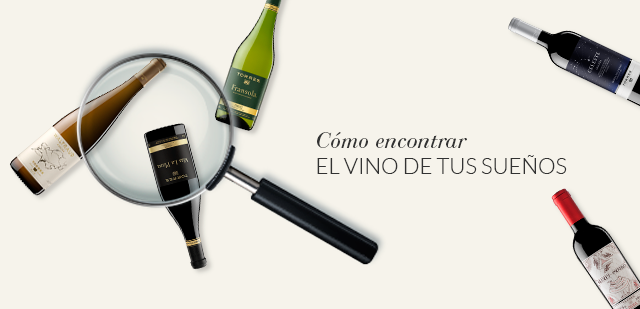How to find the wine of your dreams

Saying “I don't like wine” is like saying you don't like movies or books. Maybe you loathe Woody Allen, but love the adolescent outrageousness of the Farrelly brothers. Maybe you think Javier Marías should be manacled for life, but adore Agatha Christie murder mysteries.
Well, the same is true for wine. You might not like certain wines just like you might not like Iñárritu’s work and secretly wish he'd make tequila instead of movies. What you do love, however, is the general concept of wine. Before picking a bottle, ask yourself the following questions, and you'll quickly figure out the kind of wine you like. And, as with all true passions, you'll see how this great love story between you and the wine of your dreams will last forever. We promise.
1. Red, white or rosé?
Perhaps you like all three or just two or maybe you love whites, which are so delightfully drinkable on a summer afternoon, but don't really click with reds. Whatever the case, find your answer then take your search in that direction. Will you allow us a bit of advice? Don't turn your back on rosés. You might be missing out on some incredibly interesting wines simply because you're holding on to old stereotypes.
2. When will I drink it?
Are you looking for an aperitif, a wine to go with a hearty meal or a light one? Do you want a wine to have after dinner when everyone else has moved on to cocktails? Or a wine to have in the mid-afternoon with some dried fruit and nuts or a few slices of cheese?
3. Do I want a versatile wine or am I trying to zero in on a perfect wine-and-dish pairing?
These are two very different things. You can opt for a low-key wine—we say this with all the respect in the world—that goes well with various dishes or you can go for a daring wine with a strong personality, which might go beautifully with scallops, but is incompatible with fricandeau.
If you're looking for a food-friendly wine and don't want to open four bottles, you'll have to opt for a wine that isn't excessively anything: not too fruity, not too dry, not too much oak; a wine that works, but isn't too surprising. Young wines tend to work nicely, and in this case, a good rosé is an excellent option. If you're aiming for the perfect pairing, everything changes: you can go all out and be as rock'n'roll as you like.
4. Dry or fruity?
Often people aren't sure what dry vs. fruity wine means, but they understand the concept perfectly when it comes to gin, for example. Take your pick: a drier wine that some might find a bit challenging or a young and fruity wine that offers far more accessible aroma and flavor fireworks on the palate. Answer this question, and you'll be one step closer to the wine of your dreams.
5. Barrel aged, yes or no?
Take note: just because you like barrel-aged wines with their unmistakable notes of oak and wood doesn't mean you always have to opt for lengthy oak aging and strong personalities. Nor does it mean that this type of wine goes well with all dishes or occasions. Sometimes the wine only has to spend a few months in oak to reach that desired point where flavor and intensity are perfectly balanced. In other words, if the idea is to eat a potato salad and homemade tapas on a friend's ramshackle terrace, an accessible fresh unoaked wine might be just the ticket. As is opening several bottles, because the night is young.
6. What are we talking about when we talk about grapes?
You don't have to become an expert, but both the grape variety and the vintage tell you something about the bottle in your hands. Here is our suggestion: when you try wines, note the grape varieties. This way, you'll start building, unconsciously almost, your very own mental wine map. Think of it as a game! Simply by paying attention to the grapes, you might realize you're into Chardonnay, but can't stand Syrah. You might discover other grapes besides the well-known Garnacha and Xarel.lo, far more “underground,” but equally interesting varieties like Samsó, all of them from the Penedès.
7. Sparkling wines? Sweet wines? Yes or no?
Before vigorously shaking your head when someone offers you a sweet or a sparkling wine, give them a chance. Winemakers are doing really amazing work in this area, and if you keep an open mind, you'll discover fascinating wines that will treat your palate to a welcome surprise.
8. Should I trust the price?
Up to a certain point. The market is full of outstanding €10 wines, and less than impressive €30 ones. Generally speaking, we recommend you never trust a very cheap mature wine that has been oak aged for a long time. If you're operating on a tight budget, go for a recent vintage of a young wine. Another thing: pay attention to the vintage. Granted, this can often be misleading, because the quality of a wine also depends on how it was made independently of the vintage's characteristics. Even so, it is undeniable that certain years are magnificent and others more complicated. Keep this in mind!
